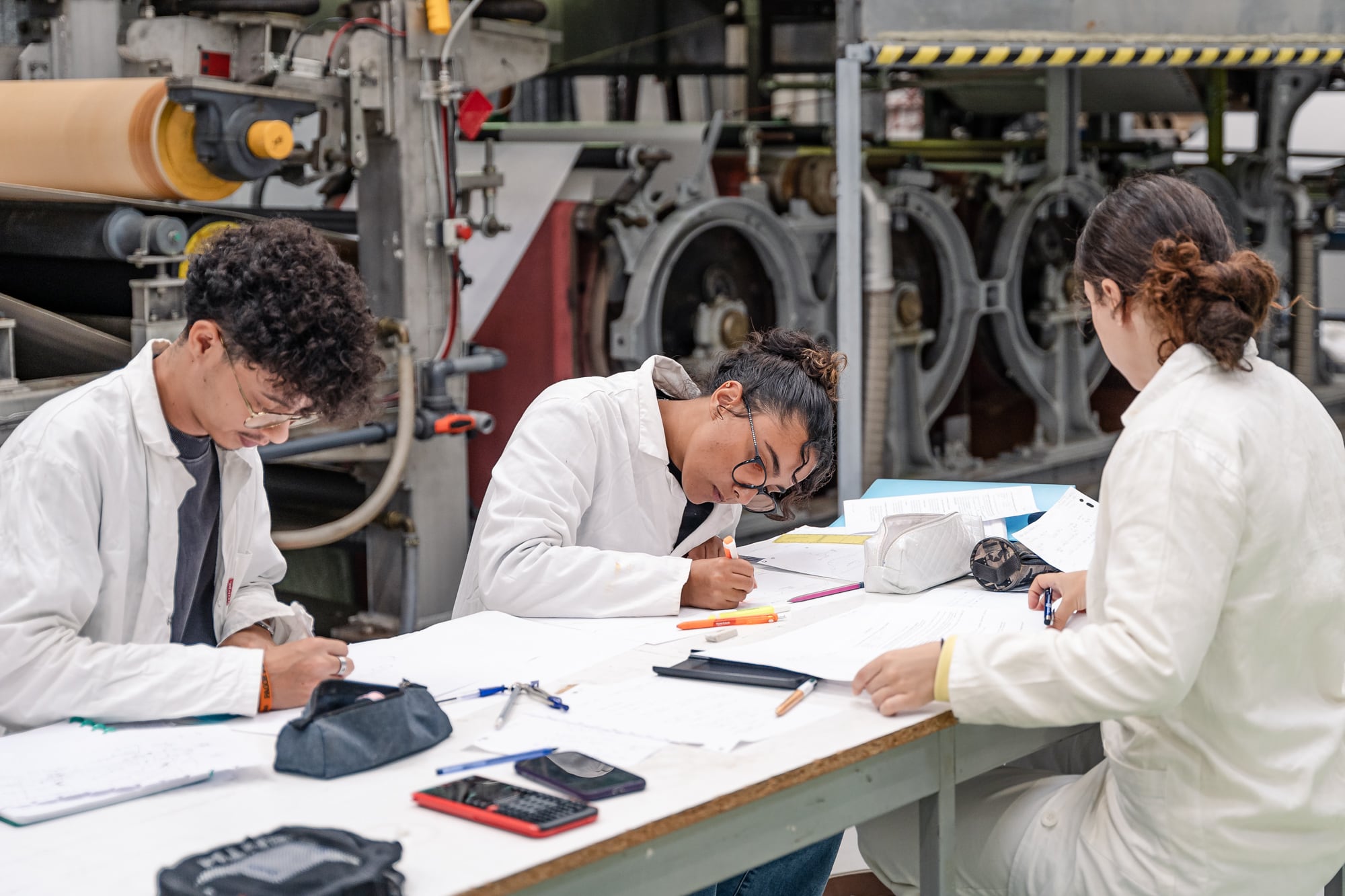
Grenoble INP - Pagora, International School of Paper, Printed Communication and Biomaterials offers a Master’s Degree (One Year Graduate Program) in Biorefinery and Bio-based materials. Available to students who have completed at least 4 years of higher education or 1 year of graduate studies (the equivalent of 240 ECTS credits) in France or abroad, this course, taught in English only, aims to train professionals specialising in biomass valorisation, in particular through the development and improvement of processes enabling its transformation into bio-based materials, chemical products or energy sources.
During this year, students will develop specific skills in the fields of chemistry, process engineering, polymerisation, biotechnology, as well as in the areas of production costs, environmental factors and energy consumption. These skills are particularly needed today by international companies and organisations in the textile, plastics, packaging, energy, food and pharmaceutical sectors.
Practical information
As part of the Master’s program in Materials Science and Engineering, this course also offers the possibility of validating a dual degree with international partners.
For this Master’s program, several scholarships are available, in France or depending on the country of origin, to cover all or part of the tuition fees as well as the costs associated with the studies. This program also includes a final-year internship lasting 5-6 months, either in a company or in a laboratory, which pays around €600 a month if it takes place in France.
Our students talk about it
Discover all the testimonials of our students
In detail
Given the environmental challenges of the 21st century, the transformation of biomass into sources of energy, chemical products or biobased materials is one of the possible solutions to help reduce the use of fossil resources, to intensify recycling operations and to reduce greenhouse gas emissions.
The Biorefinery and Bio-based Materials Master’s program at Grenoble INP - Pagora covers all the skills involved in these processes, from the supply of biomass, mainly from wood (lignocellulosic), to the production of chemicals, biofuels, synthons and biopolymers, as a replacement for products of fossil origin. The emphasis is on knowledge of the constituents of lignocellulosic biomass (lignin, hemicelluloses, celluloses, extractables), their chemistry as well as the chemical, physico-chemical and biotechnological processes that allow them to be separated, purified or modified in order to be valorised (biorefinery).
The cellulose industry which is linked to this sector, has the greatest potential for mass production of bioproducts - including fibres, fibrils, cellulosic micro and nanocrystals - as well as sugars, carbohydrates and lignin. During this Master’s program, students will acquire skills that will enable them to become specialists capable of carrying out complex chemical, physical and thermal transformations on biomass in order to synthesise new polymers and composites necessary for the production of future bio-based materials with innovative and specific properties (new functions, biodegradability, food compatibility).
In addition to knowledge in the biobased materials field, biorefinery processes are fully addressed in this master. Although similar in definition to a refinery, the great diversity of materials and the richness of their chemical composition make the biorefinery a specific process engineering operation with very particular conditions allowing the transformation of the bio-resources into a source of energy and chemical products.
How to apply for the master


